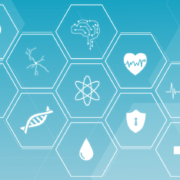AI Leverages Nursing Expertise to Improve Patient Outcomes
The know-how and experience of nurses are a critical body of knowledge and expertise about patients and patient care. Wouldn’t it be wonderful if there was a way to pool all of that knowledge into one place for hospitals and health organizations to make better decisions about patients?
There is, and as you might imagine, it involves AI.
Several health systems, led by the Columbia University Irving Medical Center (CUIMC), are testing an AI-driven predictive tool that is attempting to emulate nurses’ seemingly innate ability to pick up cues about patients’ health from subtle changes in behavior and appearance.
According to its developers, CONCERN (COmmunicating Narrative Concerns Entered by RNs) is a predictive tool that extracts nurses’ expert and knowledge-driven behaviors within patient health records and transforms them into observable data that support early prediction of organ failure or other critical conditions in hospitalized patients.
CUIMC is partnering with three hospital systems — Mass General Brigham (MA), Vanderbilt University Medical Center (TN), and Washington University School of Medicine/Barnes-Jewish Hospital (MO) — to test the effectiveness of the CONCERN implementation toolkit, developed to support large-scale adoption of the tool.
This initiative recently received funding from the American Nurses Foundation through the Reimagining Nursing Initiative.
“CONCERN shows what nurses already know: Our risk identification is not simply a subjective clinical hunch,” said Sarah Rossetti, assistant professor of biomedical informatics and nursing at Columbia, in a statement. “We’re demonstrating that nurses have objective, expert-based knowledge that drives their practice, and we’re positioning nurses as knowledge workers with tremendous value to the entire care team.”
Annually, more than 200,000 patients die in US hospitals from cardiac arrest, and over 130,000 patients’ deaths are attributed to sepsis. Many of these deaths could be preventable if patients who are at risk are detected earlier. Prior work from the CONCERN team found that nursing documentation within EHRs contains information that could contribute to early detection and treatment, but these data are not being analyzed and exposed by EHRs to clinicians to initiate interventions quickly enough to save patients.
How BigRio Helps Bring Advanced AI Solutions to Healthcare
Like the CONCERN project, leveraging human expertise and adapting to the predictive power of AI algorithms is an area where AI and machine learning are making one of the technology’s biggest impacts in the healthcare field.
BigRio prides itself on being a facilitator and incubator for such advances in leveraging AI to improve patient outcomes. In fact, it was my father’s own battle with and eventual death from lung disease that set me on my path to finding ways to use AI to provide earlier detection of serious medical conditions for improved patient care.
Eventually, among our other success stories, we did collaborate with a researcher who is in the process of developing a cognitive digital twin of the human lung. Right now, that technology is being used specifically in the realm of testing inhalers for asthma patients, but like the CONCERN project, it has broader implications for better diagnostics and early interventions to save lives.
We like to think of ourselves as a “Shark Tank for AI.”
If you are familiar with the TV series, then you know that, basically, what they do is hyper-accelerate the most important part of the incubation process – visibility. You can’t get better visibility than getting in front of celebrity investors and a TV audience of millions of viewers. Many entrepreneurs who have appeared on that program – even those who did not get picked up by the sharks – succeeded because others who were interested in their concepts saw them on the show.
At BigRio, we may not have a TV audience, but we can do the same. We have the contacts and the expertise to not only weed out the companies that are not ready, as the sharks on the TV show do but also mentor and get those that we feel are readily noticed by the right people in the biomedical community.
Rohit Mahajan is a Managing Partner with BigRio. He has a particular expertise in the development and design of innovative solutions for clients in Healthcare, Financial Services, Retail, Automotive, Manufacturing, and other industry segments.
BigRio is a technology consulting firm empowering data to drive innovation, and advanced AI. We specialize in cutting-edge Big Data, Machine Learning, and Custom Software strategy, analysis, architecture, and implementation solutions. If you would like to benefit from our expertise in these areas or if you have further questions on the content of this article, please do not hesitate to contact us.









